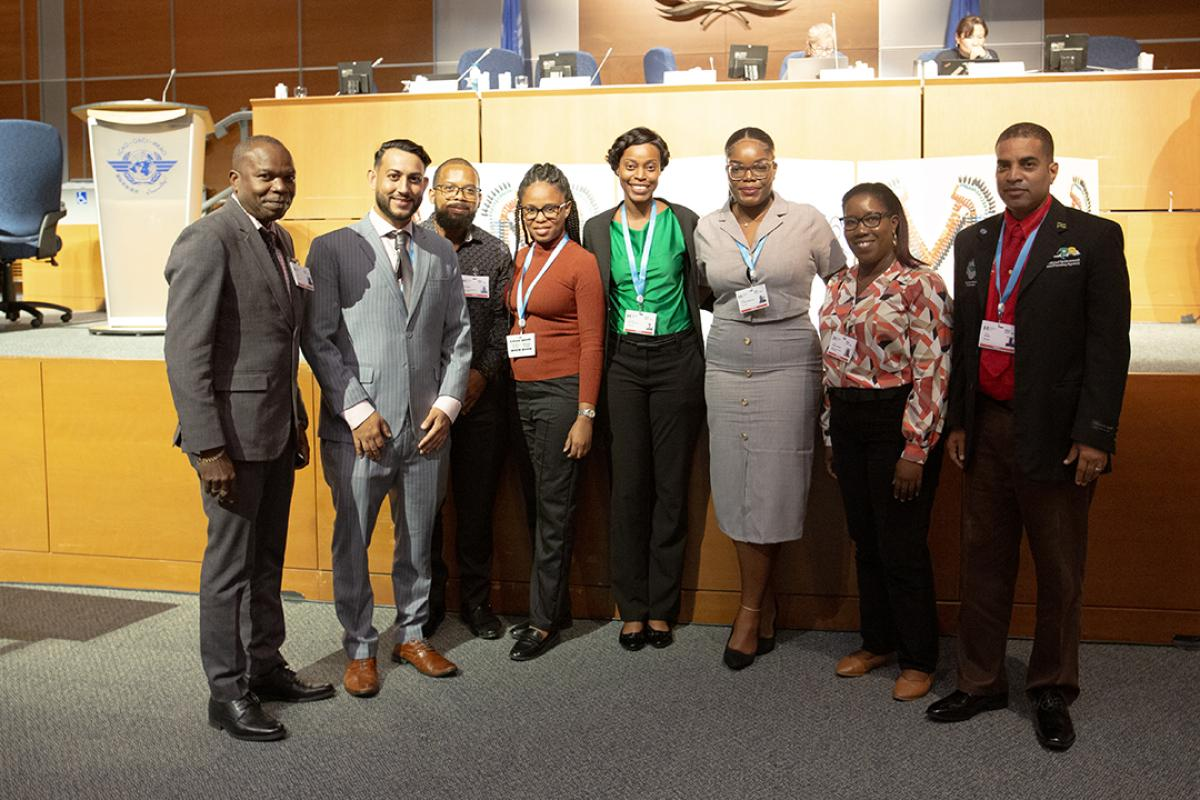The National Ozone Unit was happy to collaborate with the THA to be part of the schedule of activities at various youth camps hosted by the Tobago House of Assembly (THA) across various locations in Tobago. The NOU used the opportunity to educate on the ozone layer and its protection as well as the synergies of climate change and ozone protection.
RAC Technician Professionally Certified Registry
- Home
- Professional Certification for RAC Sector
- Updated Registry of Professionally Certified Refrigeration & Air-Conditioning Technicians in T&T
- RAC Technicians Corner
- Advisories
- General Documentation and Information for RAC Training Institutions
- Virtual Trainings and Webinars
- Rewards Programme for the Professional Certification Scheme for Refrigeration and Air Conditioning (RAC) Technicians
Tuesday, 30 July 2024
Tuesday, 23 July 2024
Talk at Summer Camps
The National Ozone Unit is engaged in education on ozone layer protection and climate protection across Trinidad and Tobago during the July/August vacation at various camps for children of all ages. One of our talks was done at Creative Kids where kids were showed the Ozzy Ozone video and excitedly took part in the learning activities that followed.
Saturday, 13 July 2024
46th Meeting of the Open-ended Working Group (OEWG 46) of the Montreal Protocol
The Montreal Protocol has made significant impacts on the fight against climate change. From 1990 to 2010, the Treaty’s control measures were estimated to have reduced greenhouse gas emissions by the equivalent of 135 gigatons of carbon dioxide, the equivalent of 11 gigatons a year. The decline in ODS emissions due to the Protocol is set to avoid global warming by about 0.5 – 1°C by 2050. Another 0.3 – 0.5°C of avoided warming by 2100 is estimated due to the phase down of hydrofluorocarbons (HFCs) under the Kigali Amendment to the Protocol. These successes are due, in large part, to the central role of the Protocol’s scientific and technical bodies. These bodies alert parties to the latest developments, and challenges that could affect the health of the ozone layer and the planet. The Open-ended Working Group (OEWG) serves as an effective interface between scientists and policymakers and lays the groundwork for parties to address the key issues necessary for the Protocol to stay ahead of any emerging issues.
At the
46th meeting of the Open-ended Working Group (OEWG 46), the work of the
Protocol’s Scientific Assessment Panel, Environmental Effects Assessment Panel,
and Technology and Economic Assessment Panel was presented to the Parties. The
reports informed discussions on the items on the agenda for this meeting, with
parties relying on the Panels’ experts to make progress on the draft decisions
that will be further discussed at the 36th Meeting of the Parties to the
Protocol (MOP 36) in late October 2024. These draft decisions relate to;
- further strengthening Montreal Protocol
institutions by addressing illegal trade;
- avoiding unwanted imports of energy
inefficient products and equipment;
- the need for additional information on
very short-lived substances;
- feedstock uses of controlled substances;
- measures to support the sustainable
management of recovered, recycled, or reclaimed halons;
- measures to facilitate the transition to
metered-dose inhalers with low-global-warming-potential propellants or
other alternative products;
- enhancing regional atmospheric monitoring
of controlled substances;
- a possible compliance deferral for
Article 5, group 2 parties, related to access to climate-friendly cooling
and refrigeration equipment; and
- strengthening the enabling environment to enhance energy efficiency in the cooling sector while implementing the Kigali Amendment.
During the OEWG meeting, several key issues were addressed in response to decisions made at the Thirty-Fifth Meeting of the Parties. These included life-cycle refrigerant management and a related report prepared by the Technology and Economic Assessment Panel. A workshop on fluorocarbon bank inventories, organized by the Climate and Clean Air Coalition the previous day, was highlighted as particularly important due to the integral role of bank management in life-cycle refrigerant management. There was a strong desire to build on the outcomes of this inventory workshop at an upcoming workshop on life-cycle refrigerant management, to be convened by the Secretariat in October 2024.
The Parties also considered a report on the costs and sustainable funding options for establishing atmospheric monitoring stations for controlled substances. Additional issues on the agenda, arising from the Thirty-Fifth Meeting of the Parties, included discussions on very short-lived substances, feedstock uses of controlled substances, carbon tetrachloride emissions, energy efficiency, funding support for countries impacted by the COVID-19 pandemic, and options to enhance reporting on HFC-23.
Trinidad and Tobago was represented at this Meeting by Mr. Jothan Bolai Ozone Specialist, Ministry of Planning and Development.



















